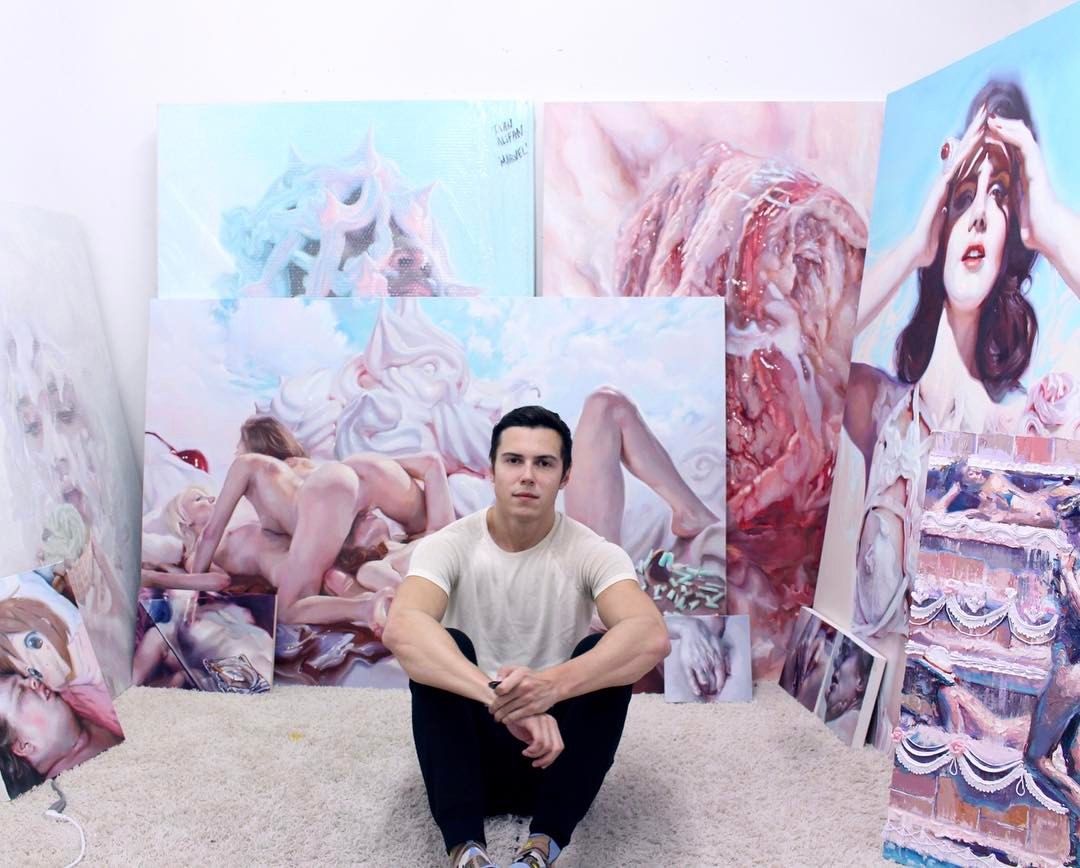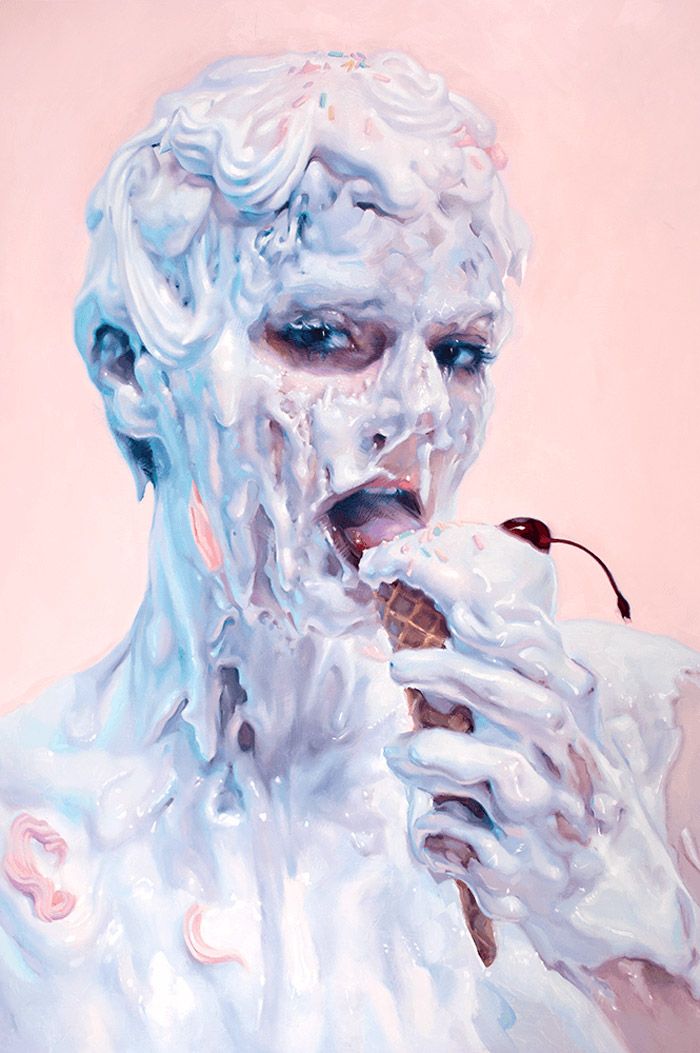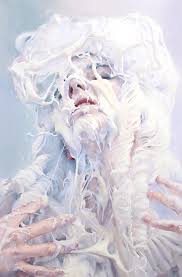Ivan Alifan is a prolific and wildly successful young painter from Toronto whose textured and eroticized figurative works have garnered him a considerable online audience, amassing thousands of followers, a dedicated group of clients and the liberty to work as an artist without restrictions. We spoke with Ivan about his technique, utilizing Instagram as an artistic platform, and advice he wants to share with emerging artists.

HOW WOULD YOU DESCRIBE YOUR STYLE IN TERMS OF GENRE?
I describe myself as a contemporary figurative artist. The majority of my work relates to the figure and how I represent the body. Right now there are so many questions in contemporary art about how to paint the body today, that is one of the things I’m most interested in.
YOUR WORK HAS A SENSUAL WET SENSIBILITY TO IT, HOW AND WHY HAVE YOU BEEN DRAWN TO THIS AESTHETIC?
This kind of sensuality comes from this notion that, there is something sexy about paint in general. It has a glistening, glossy effect to it, and there is a sexuality that comes out of this. It cannot represent the body without representing sexual desire in some form, those desires are evoked from the look of shiny, glossy, liquids. That’s why I started painting portraits of people dripping in liquids, it’s both haunting and vaguely sexual, and as a result, it disrupts the viewer. I love to make people feel sensual but disturbed at the same time. In a sense it’s all about the desires; the balance between innocence and corruption.
WHAT TECHNIQUE DO YOU USE TO ACHIEVE THE HIGHLY TEXTURAL QUALITY OF YOUR WORK?
My technique is actually quite traditional. It’s just oil on canvas. I’ve been described as a “painter’s painter”, and a lot of my technique could be called “Russian Traditionalism,” being Russian I wanted to carry on that tradition of detail.


HOW HAS INSTAGRAM IMPACTED YOUR WORK AND SUCCESS AS AN ARTIST?
Instagram definitely participated in how I found success and has played an important role in how I’ve matured and grown as an artist. I’m always asking myself, how can I stop the viewer from scrolling past? Art is always viewed in a fast-paced environment, even in a museum the average person takes 3 seconds to look at a painting. My goal is to freeze people.
If it wasn’t for Instagram I would probably be sitting and painting without anyone seeing what I do, and the work would get lost in time, but because my work is accessible to thousands now, my images spread like viruses; it has opened up a whole new freedom as an artist. I am not dependent on galleries to sell my work.
HOW DID YOU GARNER SO MUCH EARLY SUCCESS IN YOUR CAREER?
After I graduated from OCAD I kept on painting and I wasn’t really hanging out with graduate friends. I was painting home alone for 2 or 3 years, and then in the third year, I felt too comfortable. I didn't feel like Toronto was pushing me as an artist. I feel like sometimes artists want to struggle; when you struggle is when you push yourself and learn the most. The majority of the galleries and buyers I was working with at the time were from New York, so I asked myself why am I in Toronto? I challenged myself by moving to New York and that really pushed me. Once you become comfortable in your art, it is as slow death.
WHAT ARE SOME OF THE LESSONS YOU’VE LEARNED AS A WORKING ARTIST?
Living as an artist, I’ve realized have a balance between art and economic stability is very hard to achieve, and I feel like I’ve won the lottery because I have the privilege of having both. There is a certain fear that every artist has, “how do I continue?” “Is my work just a trend or is this universal; can it stand the test of time? When I think about sexuality, those are desires that link back to a primitive space that will never die out.”
WHAT ADVICE WOULD YOU GIVE TO THOSE IN ART SCHOOL RIGHT NOW?
In my experience, there are two types of people I found in art school. There are those who got amazing grades, and really followed the assignments, and then there were the people who painted for themselves and avoided following the instructions too closely. The latter are the ones that I’ve seen who have succeeded the most. They pushed the boundaries of the assignments and worked as themselves. There’s truth to the fact that after you graduate there are no more assignments, there are no more rubrics or someone telling you what to do. You need to make your own projects.
WHAT ADVICE DO YOU HAVE FOR RECENT GRADUATES AND OTHER EMERGING ARTISTS?
Try and paint only for yourself. In the beginning, I was painting for my mother and for my professors, and after graduating I stopped painting for other people. You have to be stubborn. I like to listen to criticism, but I choose to pick what I need to take from it. My teachers told me not to paint figurative work, but I continued to and it led me to where I am today.
Another piece of advice I have is to go to galleries, travel, go to museums, go to art openings. Don’t be afraid to sell your work through a coffee shop, there are so many things that artists avoid. I always want artists to realize that you’re an artist but you can generate income through various aspects of your practice. Art school, unfortunately, doesn’t give you the financial advice to live as an artist.
